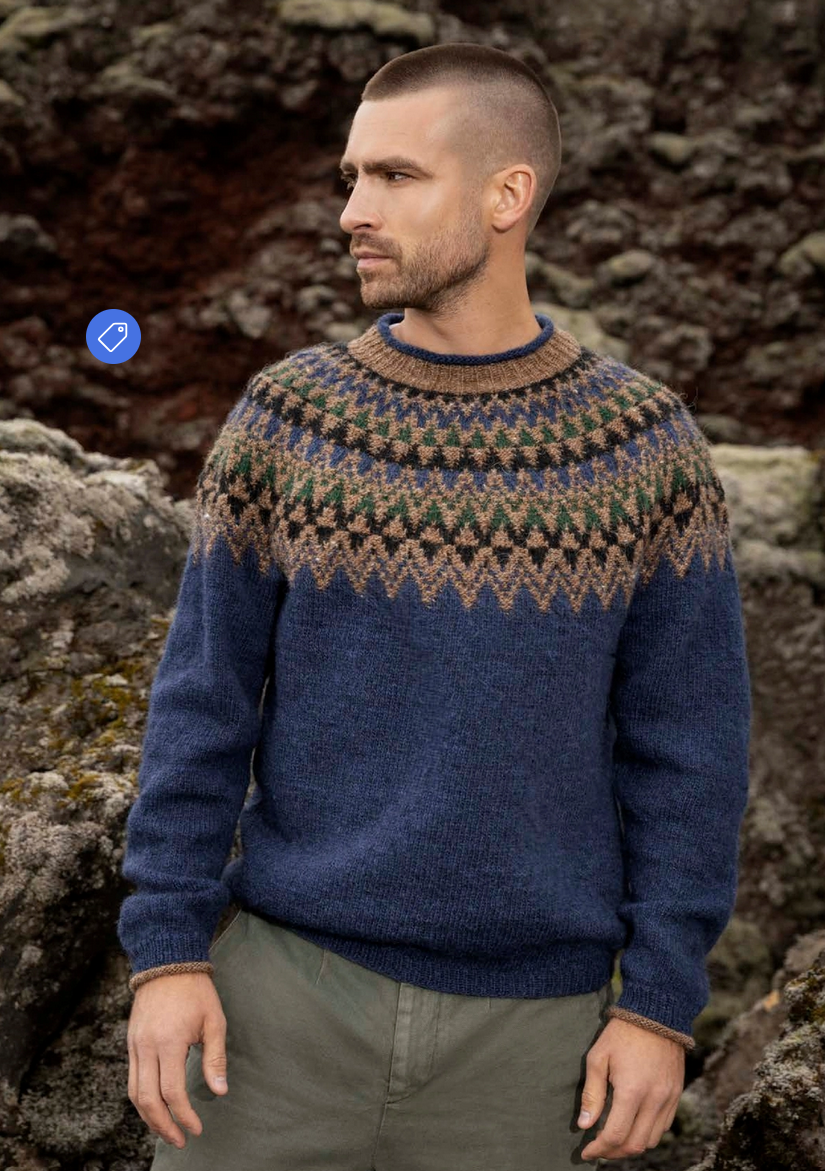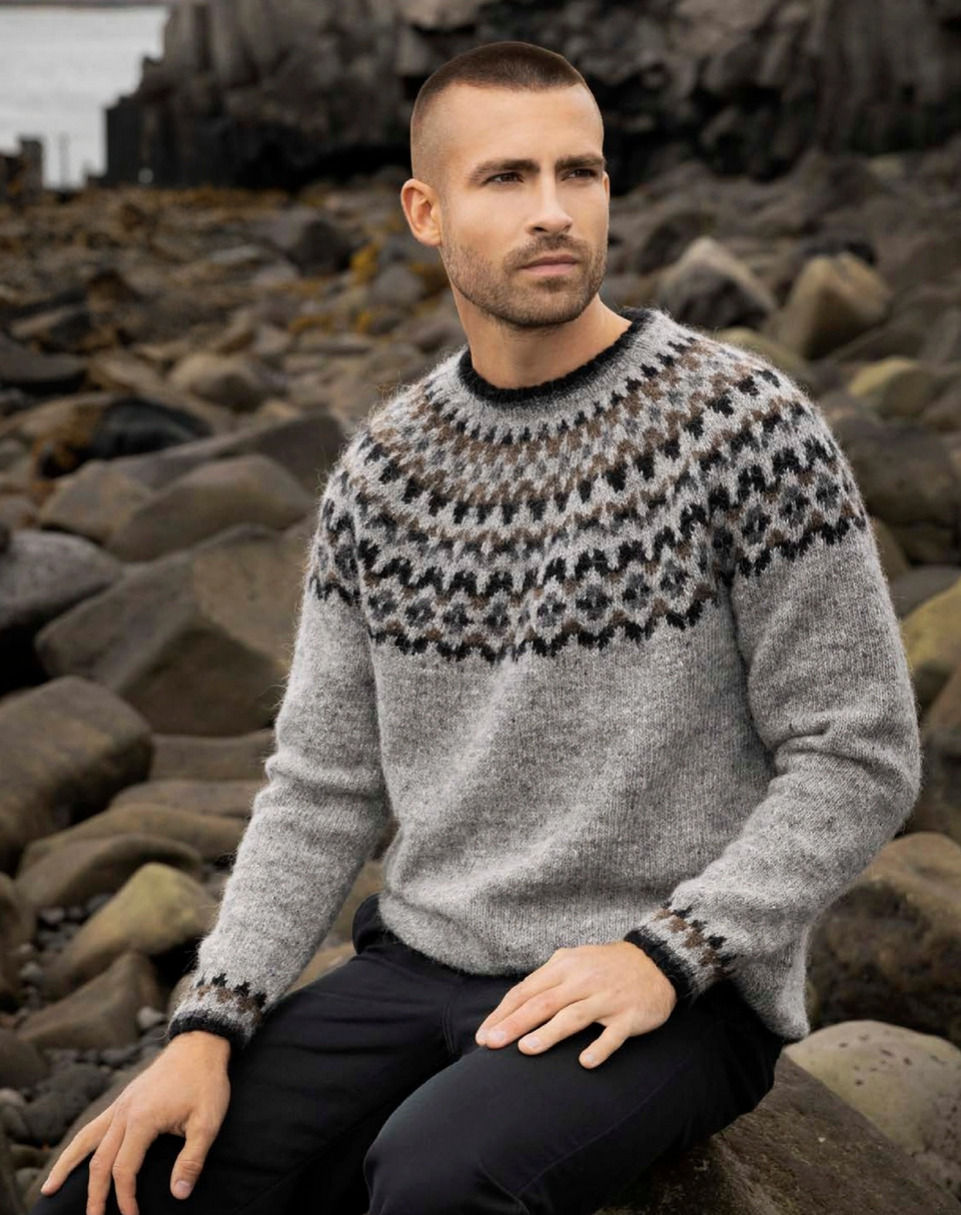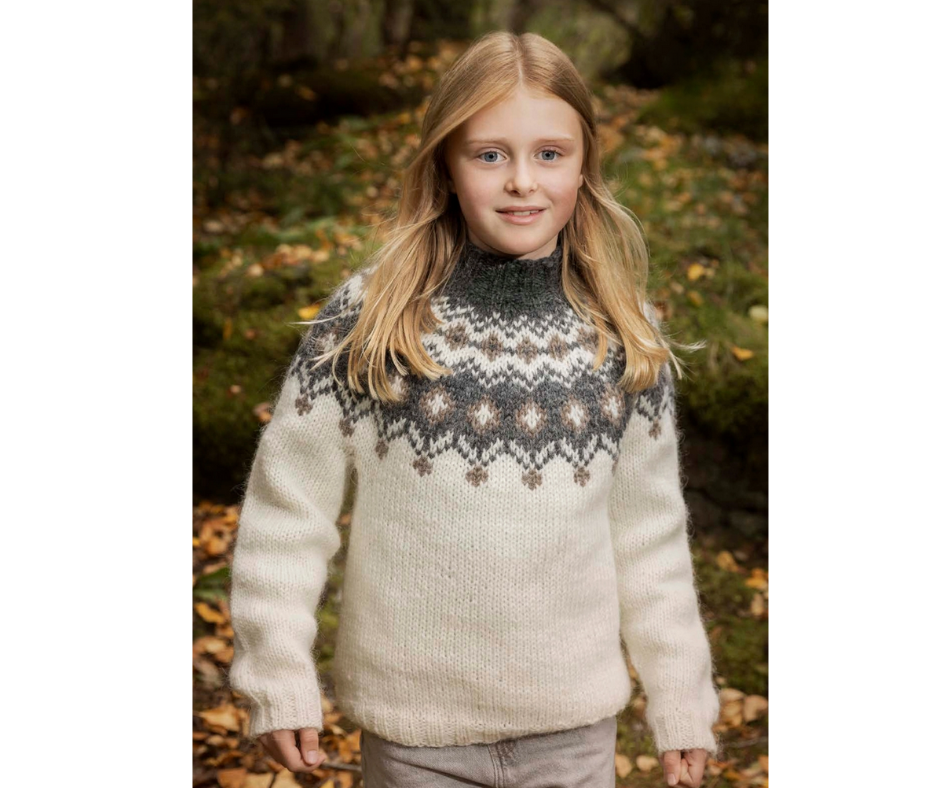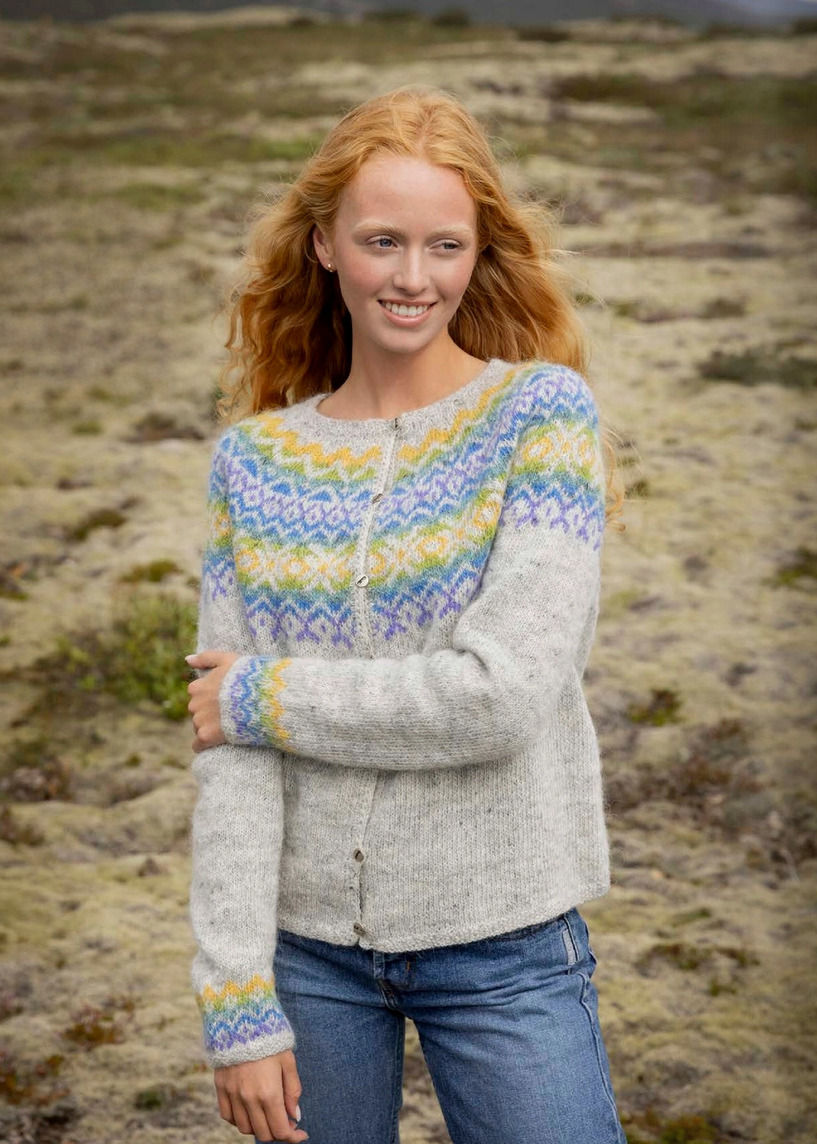Lettlopi Islandwolle
50g Knäuel
Lettlopi ist das leichtere Lopi-Garn. Mit einer Lauflänge von 100 Metern pro 50g eignet sich zum Stricken von Kleidungsstücken für Drinnen und Draußen.
Wir haben die passenden Strickanleitungen für traditionelle Islandpullover und moderne nordische Muster, die passenden Stricknadeln und komplette Strickpakete. Lettlopi online kaufen bei wollkosmos.de.
Material: 100% Islandwolle
Lauflänge: 100m/50g
Nadelstärke: 4-5 mm
Verbrauch: für einen Pullover in Größe 38/40 benötigt man ca. 600g
Strickpakete
Jöklalopi, Alafosslopi, Plötulopi, Lettlopi und Einband bilden die Familie der Lopi Garne von Istex hergestellt aus reiner isländischer Wolle.
Die Islandschafe (Ovis aries borealis) haben sich in den weit über 1000 Jahren, die sie auf Island angesiedelt sind, an die klimatischen Besonderheiten des hohen Nordens angepasst und tragen dadurch eine in ihren Eigenschaften einzigartige Wolle. Lopi ist die Bezeichnung für die Kombination aus der weichen und wärmenden Unterwolle des Schafes und den langen und wasserabweisenden Haaren der Überwolle. Eine Verbindung dieser Eigenschaften in einem Faden ermöglicht also das Stricken von Pullovern und Jacken, die sich angenehm tragen und uns zudem vor Kälte und Feuchtigkeit schützen.
In schönen Farben und Mustern erfreuen Kleidungsstücke aus isländischer Wolle alle Sinne. Mit der feinen Eindband Wolle können zarte Tücher und Kleidungsstücke für Frühjahr und Sommer gestrickt werden, mit Plötulopi und Lettlopi Pullis für Drinnen und Draußen, mit der dicken Alafosslopi und Jöklalopi super warme Pullover und Jacken, die auch im Winter vor Kälte isolieren. Oder wie wäre es mit einer Decke, die uns an kühlen Abenden auf Balkon oder Terrasse wärmt?
Islandpullover sind zeitlose Kleidungsstücke für Jung und Alt und erfreuen sich auch bei der modebewussten Jugend immer größerer Beliebtheit, durch die Verbindung des Nachhaltigkeitsgedankens mit trendigen Farben, Formen und Mustern. Islandwolle ist ein natürliches Produkt, das für jedermann erschwinglich ist und mit einem günstigen Preis jedem Menschen ermöglicht, sich schöne und praktische Kleidung und Accessoires selbst zu fertigen.
In Island gibt es ca. 400.000 bis 500.000 Schafe. Die Schaffarmen werden von Familien geführt, die zwischen 200 und 300 Schafe besitzen, und in einer Genossenschaft organisiert sind. Dadurch kennen viele Schäfer ihre Tiere noch beim Namen. Im milden Sommer ziehen die Schafe frei durch die Wildnis Islands, während sie im arktischen Winter bei den Schäfern Unterschlupf finden.
Zum einen gibt es aufgrund des kalten Klimas in Island kaum Ungeziefer, das mit Schädlingsbekämpfungsmitteln vernichtet werden muss, zum anderem sind in Island die Standards für Tierwohl insbesondere für Schafe sehr hoch und die Kontrollen dieser extrem streng. Daher bekommen Schafe äußerst selten Antibiotika, Hormone oder ähnliche chemische Mittel und Behandlungen verabreicht. Die Verwendung von Pestiziden und Herbiziden ist in der Schafzucht stark begrenzt, so dass die Islandwolle ein sehr reines ökologisch hochwertiges Produkt ist. Schafe werden nicht enthornt und sind frei von Mulesing. Nach dem Schären bleiben die Schafe solange im Schutze einer Behausung bis sie wieder die erste warme Wolle tragen. Für weitere Informationen zum Tierwohl in Island besuchen Sie gerne MAST, die Webseite der Islandic Food and Veterinary Authority. Durch eine wesentlich geringere Schadstoffbelastung in der isländischen Luft, ist die Islandwolle auch wesentlich sauberer als viele andere europäische Wolle.
Trotz sorgfältiger inhaltlicher Kontrolle übernehmen wir keine Haftung für die Inhalte externer Links. Für den Inhalt der verlinkten Seiten sind ausschließlich deren Betreiber verantwortlich.




















































